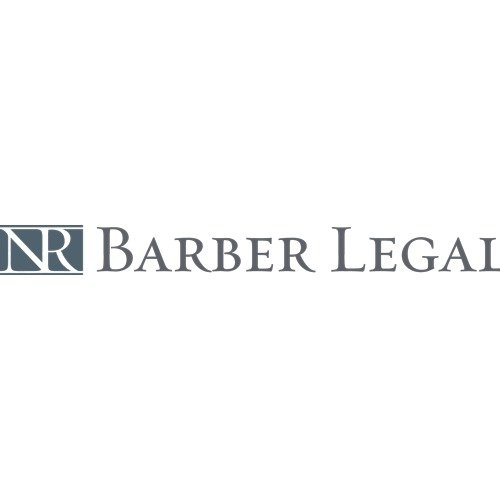Best Sexual Harassment Lawyers in Australia
Share your needs with us, get contacted by law firms.
Free. Takes 2 min.
Or refine your search by selecting a city:
List of the best lawyers in Australia
About Sexual Harassment Law in Australia
Sexual harassment in Australia is considered unlawful conduct that is prohibited both federally and by state laws. It involves any unwanted or unwelcome sexual behavior that makes a person feel offended, humiliated, or intimidated. This can occur in various settings, including workplaces, educational institutions, and public spaces. The primary national legislation dealing with sexual harassment is the Sex Discrimination Act 1984, which is enforced by the Australian Human Rights Commission (AHRC). Each state and territory also has its own laws and agencies addressing sexual harassment issues, providing a legal framework for victims to seek redress.
Why You May Need a Lawyer
There are several situations where legal assistance may be beneficial or necessary for individuals facing sexual harassment:
- Understanding Rights and Options: Victims may need help understanding their legal rights and what actions they can take.
- Filing Formal Complaints: A lawyer can assist in preparing and submitting complaints to the appropriate authorities or commissions.
- Negotiating Settlements: Legal counsel can be vital in negotiating settlements or mediation between the victim and the perpetrator or the workplace.
- Pursuing Litigation: In some cases, victims may need to take legal action in court, where professional legal representation is essential.
- Navigating Employment Laws: If the sexual harassment occurs in a workplace setting, understanding employment protections and rights is crucial.
Local Laws Overview
In Australia, sexual harassment laws are governed by both federal and state/territory-specific legislation. Key aspects include:
- Federal Level: The Sex Discrimination Act 1984 prohibits sexual harassment across various areas including employment, education, provision of goods and services, accommodation, and clubs.
- State and Territory Laws: Each jurisdiction in Australia has its own anti-discrimination laws that complement federal legislation. These include processes for lodging complaints and seeking remedies.
- Employer Obligations: Employers are required to provide a safe working environment, free from harassment. Failure to do so can lead to liability under employment law.
- Complaint Mechanisms: The Australian Human Rights Commission and equivalent state bodies are responsible for handling complaints and facilitating resolutions.
Frequently Asked Questions
What constitutes sexual harassment in Australia?
Sexual harassment includes any unwanted sexual advances, comments, gestures, or physical touch. It is judged from the perspective of a reasonable person considering it offensive.
Where can sexual harassment occur?
Sexual harassment can occur in any setting, including workplaces, schools, universities, public places, and online environments.
What should I do if I experience sexual harassment?
Document the incidents, speak to a trusted individual or HR representative, and consider seeking legal advice or lodging a formal complaint.
Is my employer responsible for preventing sexual harassment?
Yes, employers have a legal duty to prevent and address sexual harassment within the workplace under the Sex Discrimination Act and related laws.
Can I pursue legal action for sexual harassment that happened online?
Yes, online sexual harassment is also prohibited, and victims can seek legal recourse through the same channels as other forms of harassment.
What are the potential outcomes of a sexual harassment complaint?
Outcomes can include apologies, policy changes, compensation, or other remedies depending on the circumstances and severity of the harassment.
How long do I have to file a complaint?
Time limits vary by jurisdiction, but complaints should generally be filed as soon as possible. At the federal level, the limitation is typically six months from the last incident.
What is the role of the Australian Human Rights Commission in harassment cases?
The AHRC provides a platform to lodge complaints, facilitates conciliation, and raises awareness about rights and obligations under the Sex Discrimination Act.
Can I make a complaint anonymously?
Anonymous complaints are challenging to pursue, although some organizations might consider them depending on their policies.
Will I face retaliation for reporting sexual harassment?
Retaliation is unlawful, and victims are protected under anti-discrimination and employment laws. Legal steps can be taken if retaliation occurs.
Additional Resources
For individuals seeking legal advice on sexual harassment, the following resources may be helpful:
- Australian Human Rights Commission: Provides information, guidance, and complaint services related to sexual harassment.
- Fair Work Commission: Offers assistance on workplace rights and responsibilities.
- State Anti-Discrimination Bodies: Each state has its own agency, such as the Victorian Equal Opportunity and Human Rights Commission or the NSW Anti-Discrimination Board.
- Legal Aid Commissions: Provide free or low-cost legal assistance across all states and territories.
- Community Legal Services: Offer support and advice for those who may not afford private legal services.
Next Steps
If you need legal assistance with sexual harassment issues in Australia, consider the following steps:
- Document Incidents: Collect and maintain detailed records of all instances of harassment.
- Seek Initial Advice: Reach out to community legal centers or legal aid for initial guidance and assessment.
- Contact Relevant Authorities: Consider lodging a complaint with the Australian Human Rights Commission or the relevant state body.
- Consult a Lawyer: Engage with a lawyer specializing in employment law or sexual harassment to discuss your case and potential actions.
- Explore Mediation Options: Consider mediation as a way to resolve issues outside of court.
- Prepare for Potential Litigation: If necessary, prepare for the possibility of litigation as a last resort to seek justice and resolution.
Lawzana helps you find the best lawyers and law firms in Australia through a curated and pre-screened list of qualified legal professionals. Our platform offers rankings and detailed profiles of attorneys and law firms, allowing you to compare based on practice areas, including Sexual Harassment, experience, and client feedback.
Each profile includes a description of the firm's areas of practice, client reviews, team members and partners, year of establishment, spoken languages, office locations, contact information, social media presence, and any published articles or resources. Most firms on our platform speak English and are experienced in both local and international legal matters.
Get a quote from top-rated law firms in Australia — quickly, securely, and without unnecessary hassle.
Disclaimer:
The information provided on this page is for general informational purposes only and does not constitute legal advice. While we strive to ensure the accuracy and relevance of the content, legal information may change over time, and interpretations of the law can vary. You should always consult with a qualified legal professional for advice specific to your situation.
We disclaim all liability for actions taken or not taken based on the content of this page. If you believe any information is incorrect or outdated, please contact us, and we will review and update it where appropriate.
Browse sexual harassment law firms by city in Australia
Refine your search by selecting a city.
















